Libraries as Well-Being Hubs
Challenge
How might we both leverage libraries as integral components of the healthcare continuum and secure the additional support necessary for this transformation?
Context
Libraries have evolved beyond traditional roles, now serving as critical community hubs for health and wellness. While libraries are increasingly called upon to address the health and social needs of their communities, they often lack the resources, support, and funding to meet these demands. Many librarians feel overwhelmed and underprepared to fulfill these roles, while library infrastructure remains insufficient for the scope of services required.
In collaboration with IC² at the University of Texas, a design team of four learners in the M.A. in Design focused on Health program explored how libraries can meet growing demands for health services, particularly in underserved areas. Their focus included libraries in Texas and Louisiana, where they researched the potential for these spaces to support mental health, telehealth, and social services.
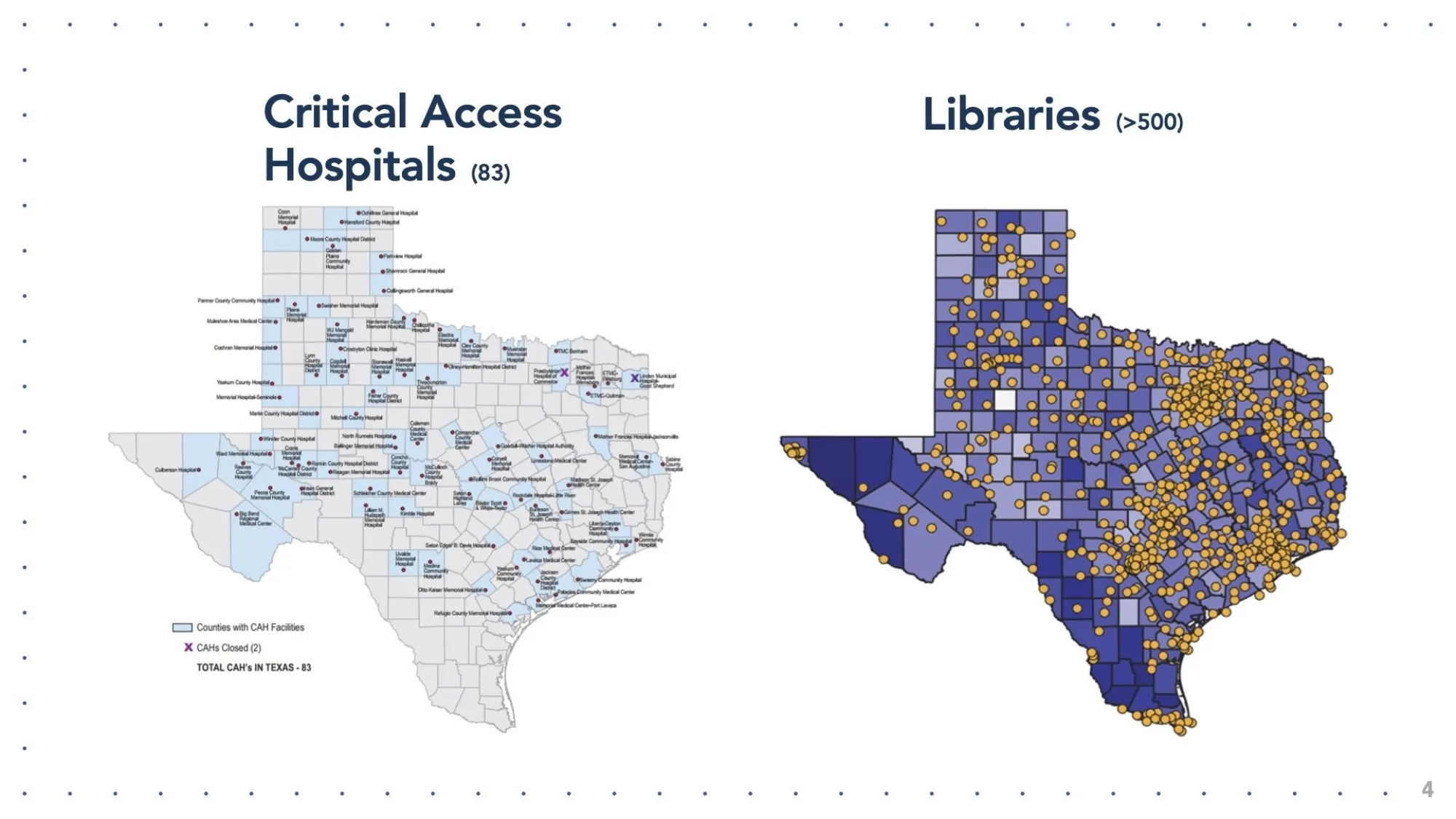
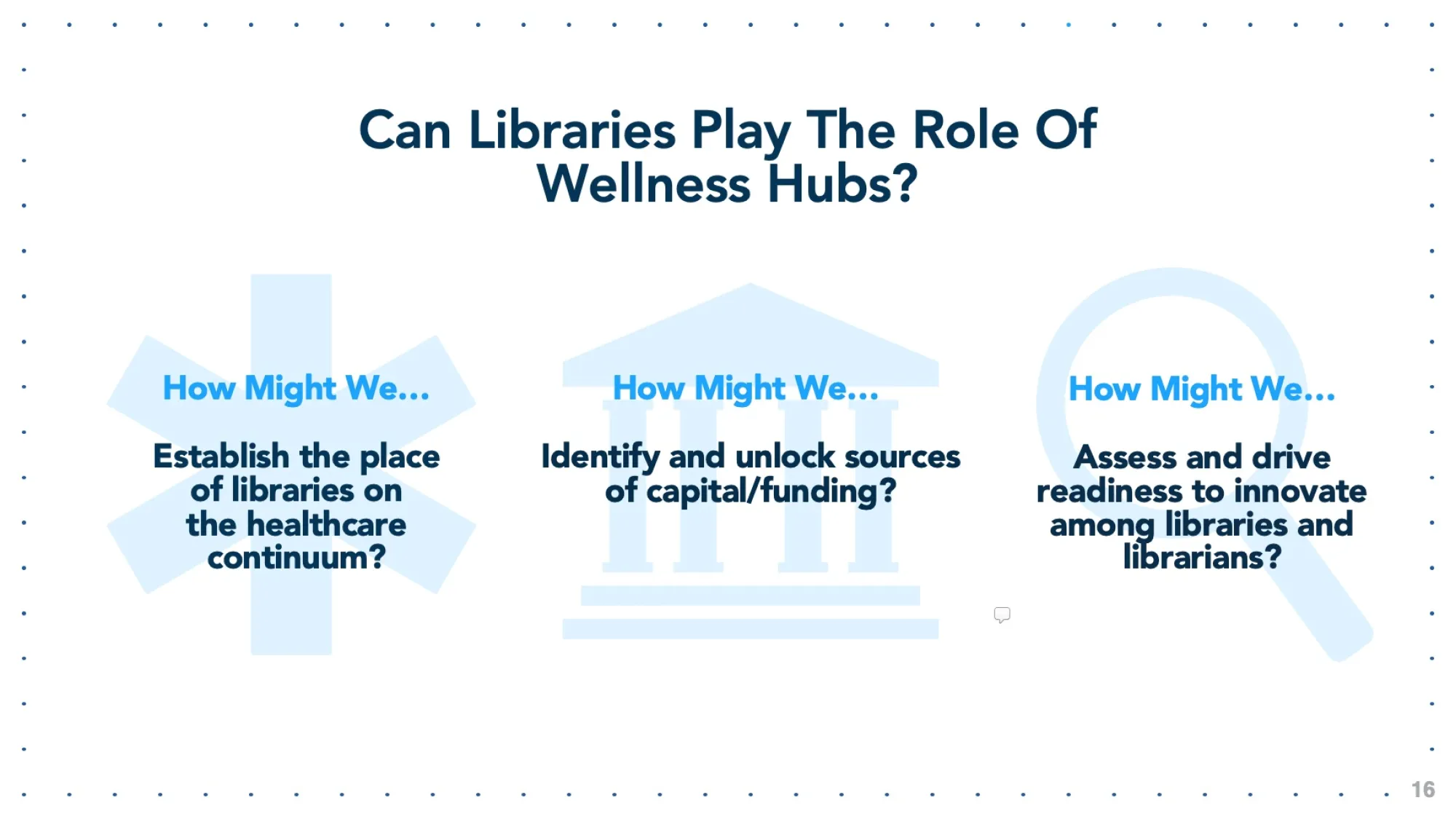
Approach
The design team conducted in-depth interviews with librarians, mental health professionals, and experts in the field, while also observing library operations in various urban and rural locations. They examined how libraries are currently used for health services such as telehealth and community support programs, comparing differences in resource availability.
Additionally, they developed prototypes to address the gaps they identified, including platforms for collaboration among librarians and tools to demonstrate the value of library services.
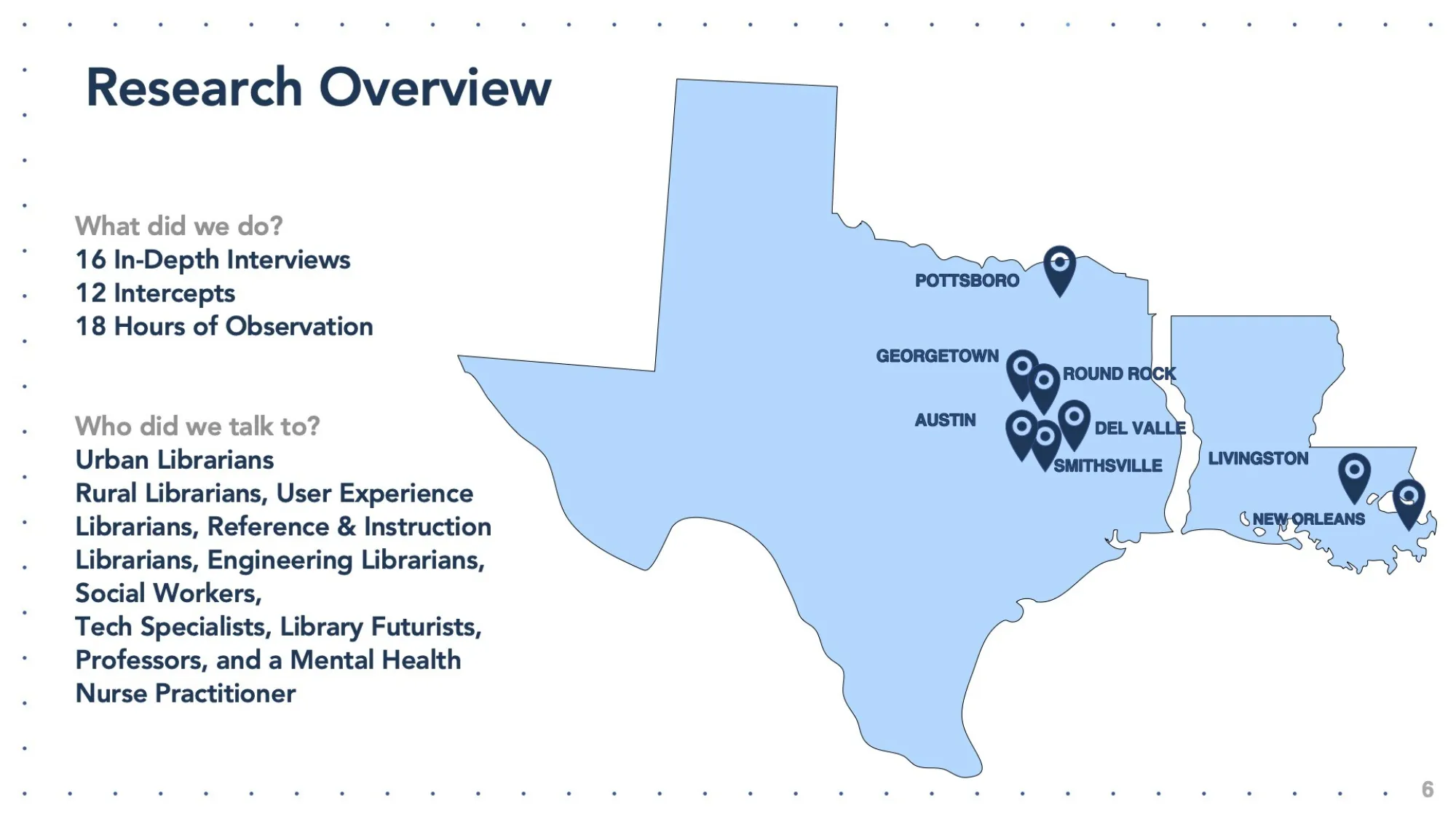
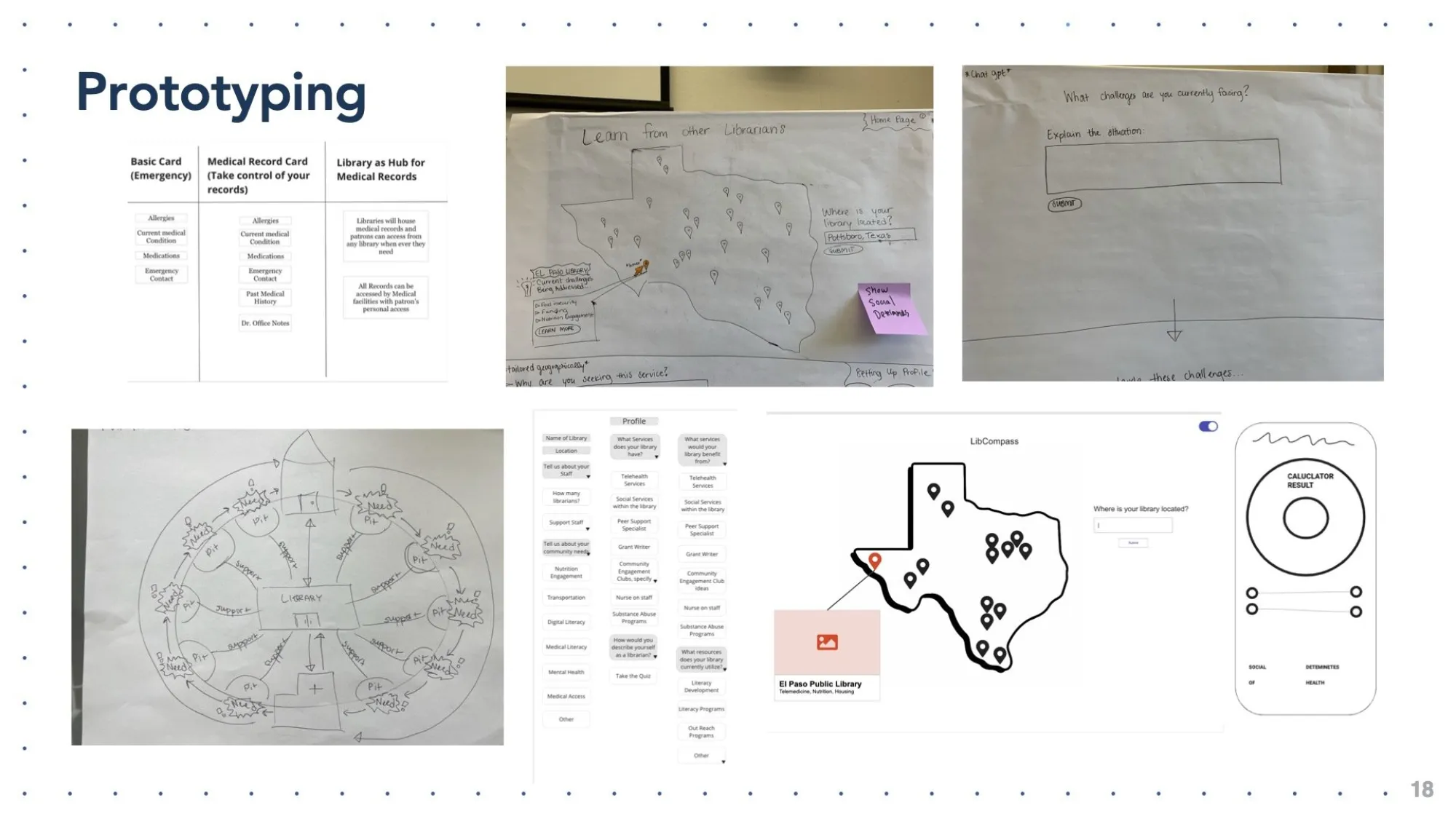
Insights
- Librarians as Health and Social Care Providers: Librarians often take on informal caregiving roles, providing critical health-related support even though they lack formal training and resources.
- Barriers to Health Services: Libraries face significant barriers, including inadequate funding, insufficient training, and limited digital infrastructure, preventing them from effectively providing the health services their communities need.
- Community Trust: Libraries are trusted, safe spaces where people seek support for sensitive issues, such as mental health, without the stigma they might face in other settings.
- Underfunding Across Contexts: Both rural and urban libraries face funding challenges, dispelling the assumption that urban libraries are better resourced.
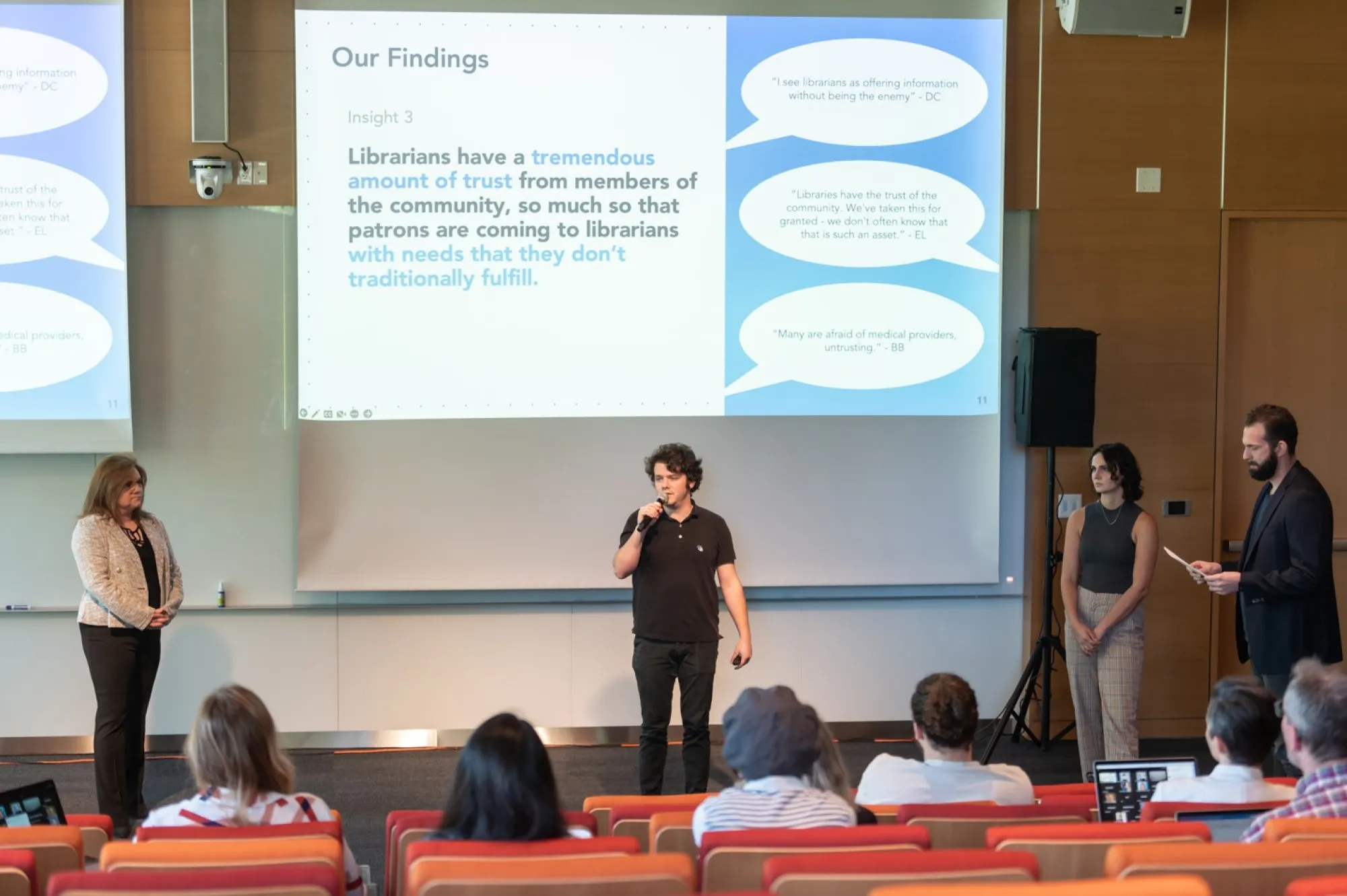
Solutions
The design team proposed several solutions to address these gaps and challenges, including:
- Librarian’s Compass: A platform that connects librarians to share solutions and support community health needs
- Value Calculator: A tool to quantify the social and financial impact of libraries, helping them justify increased funding and resources
- Library Health Card: A concept allowing patrons to store emergency health information on their library cards, accessible in medical emergencies
This diverse set of solutions positions libraries as integral parts of the healthcare continuum, equipped to meet the evolving needs of their communities.
Librarian’s Compass
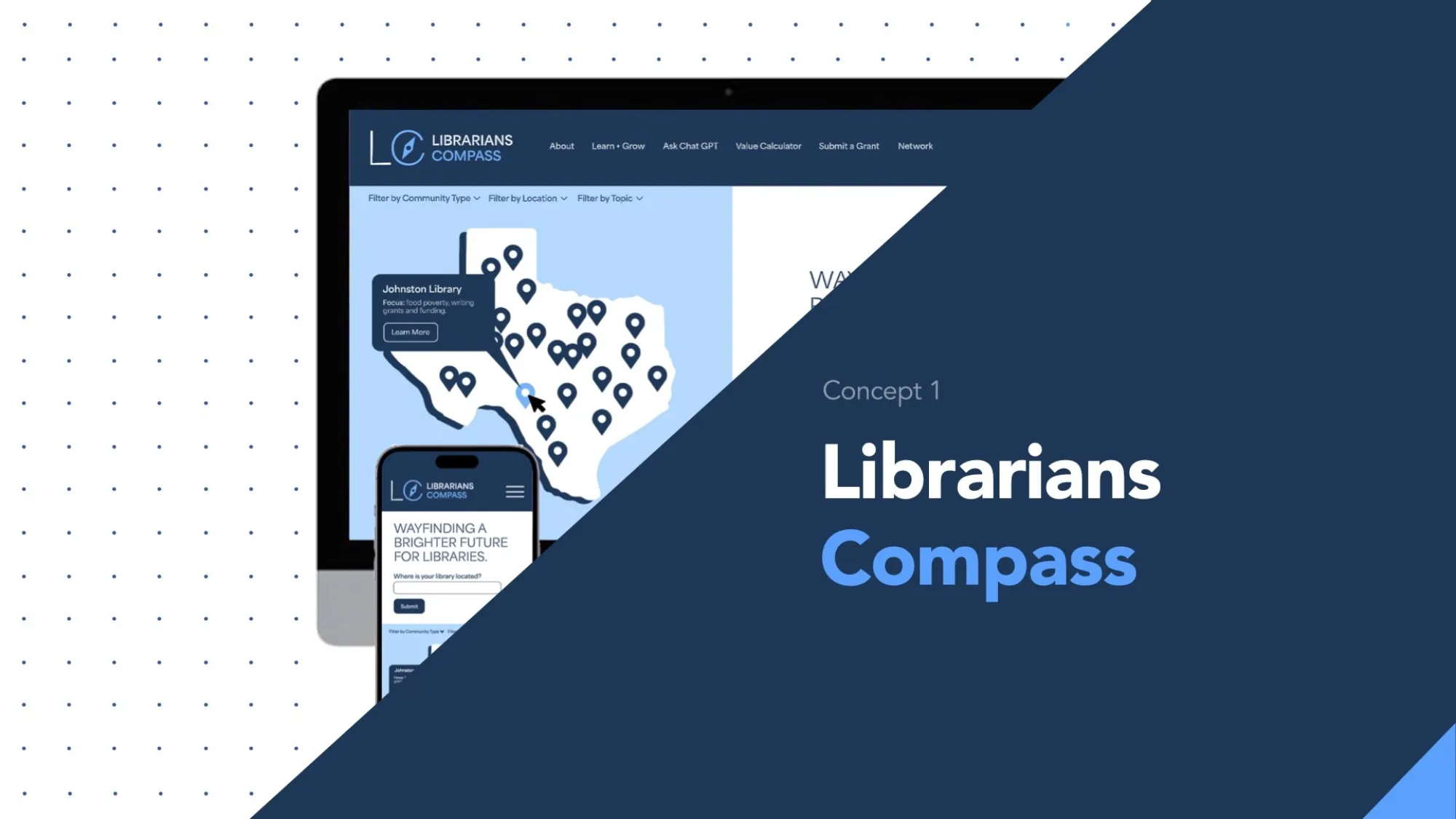
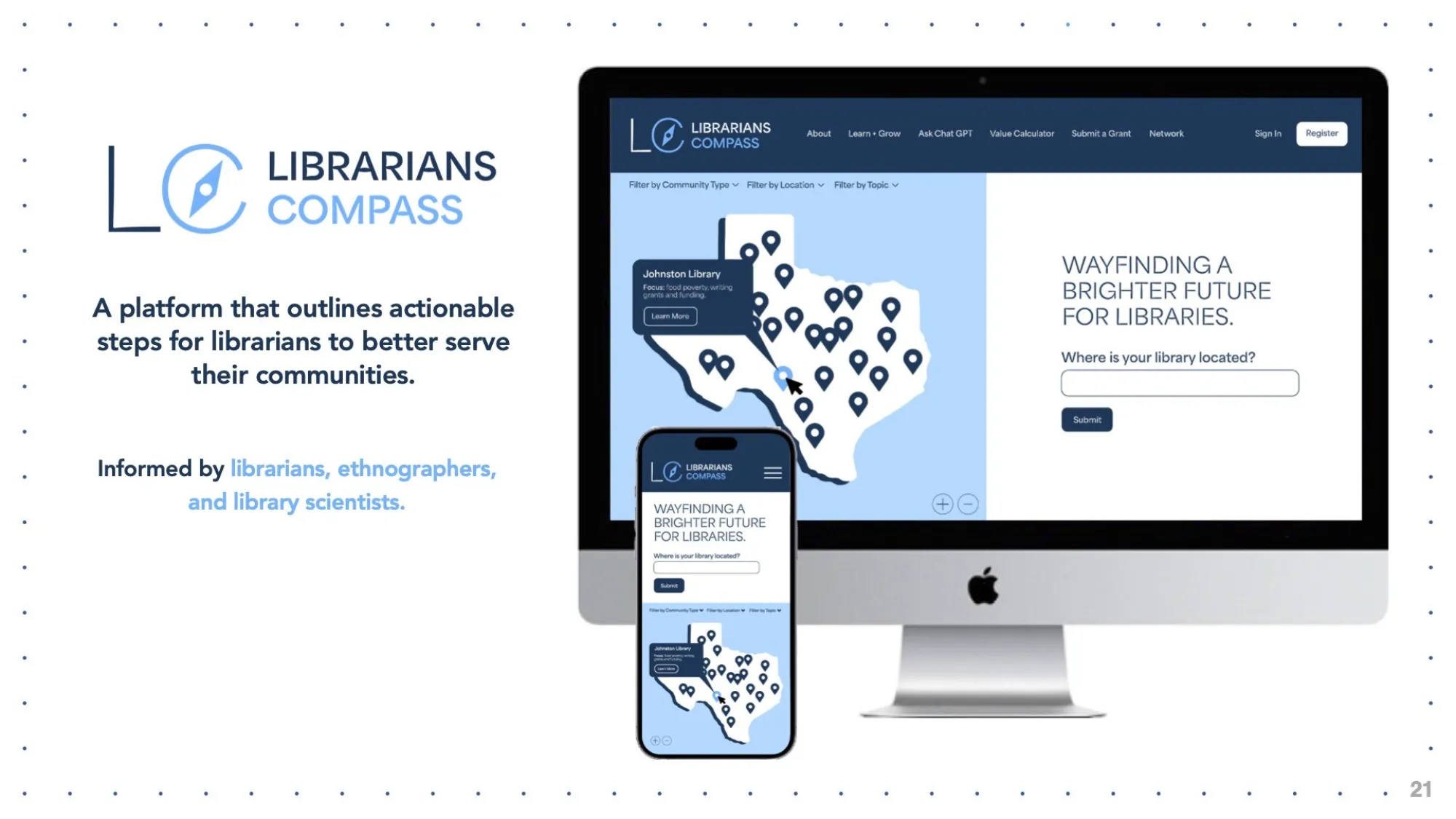
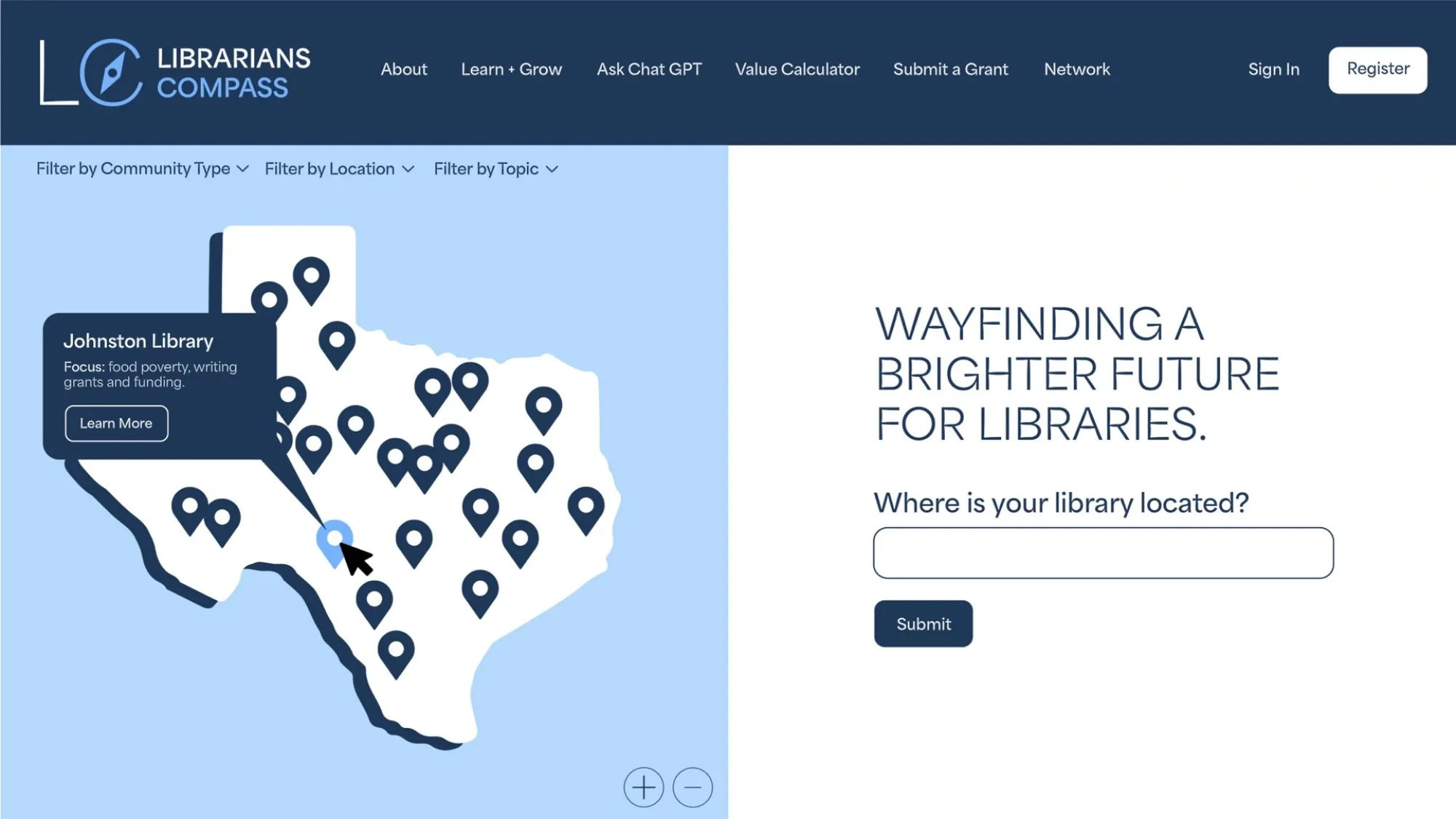
Value Calculator
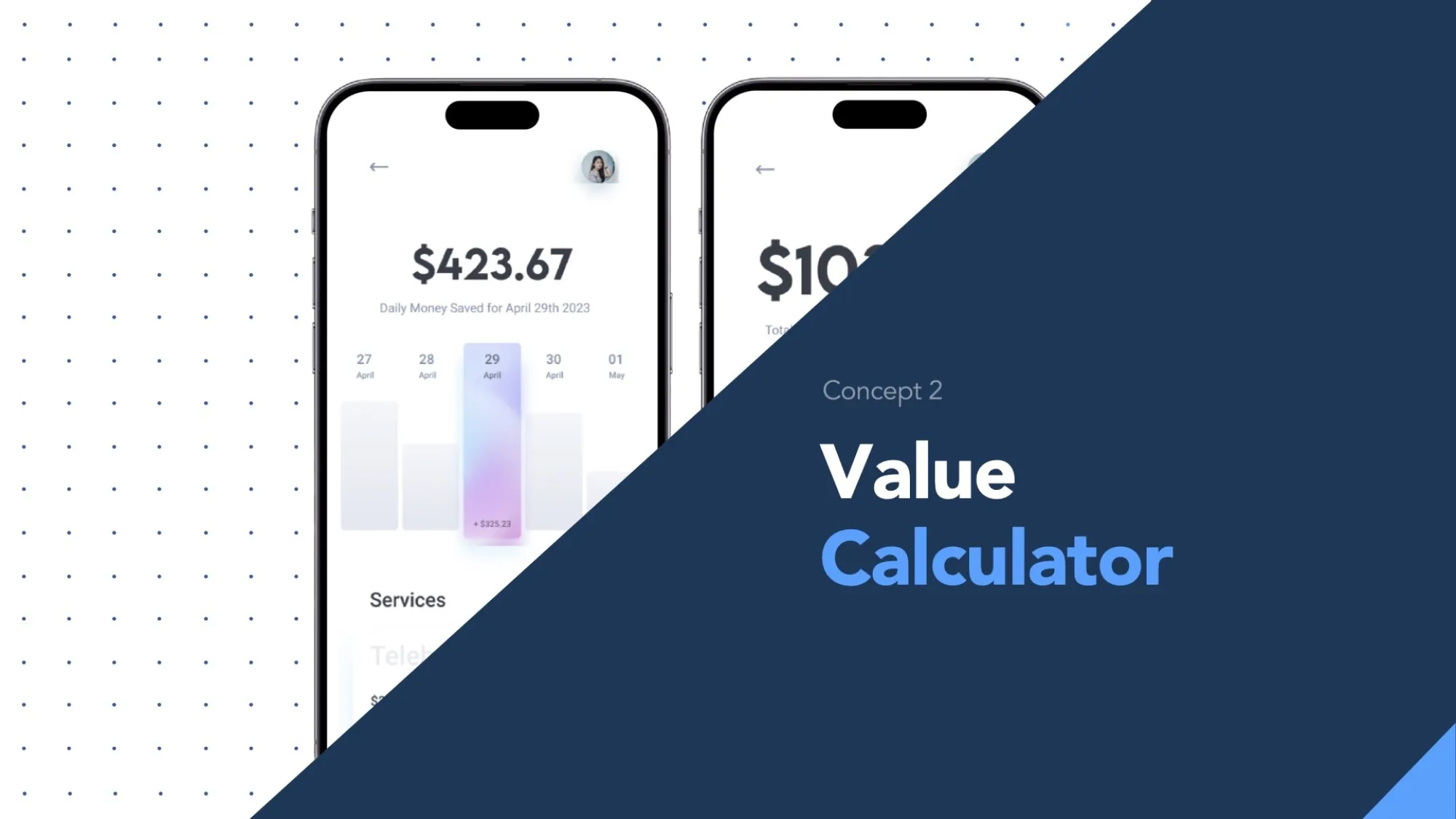
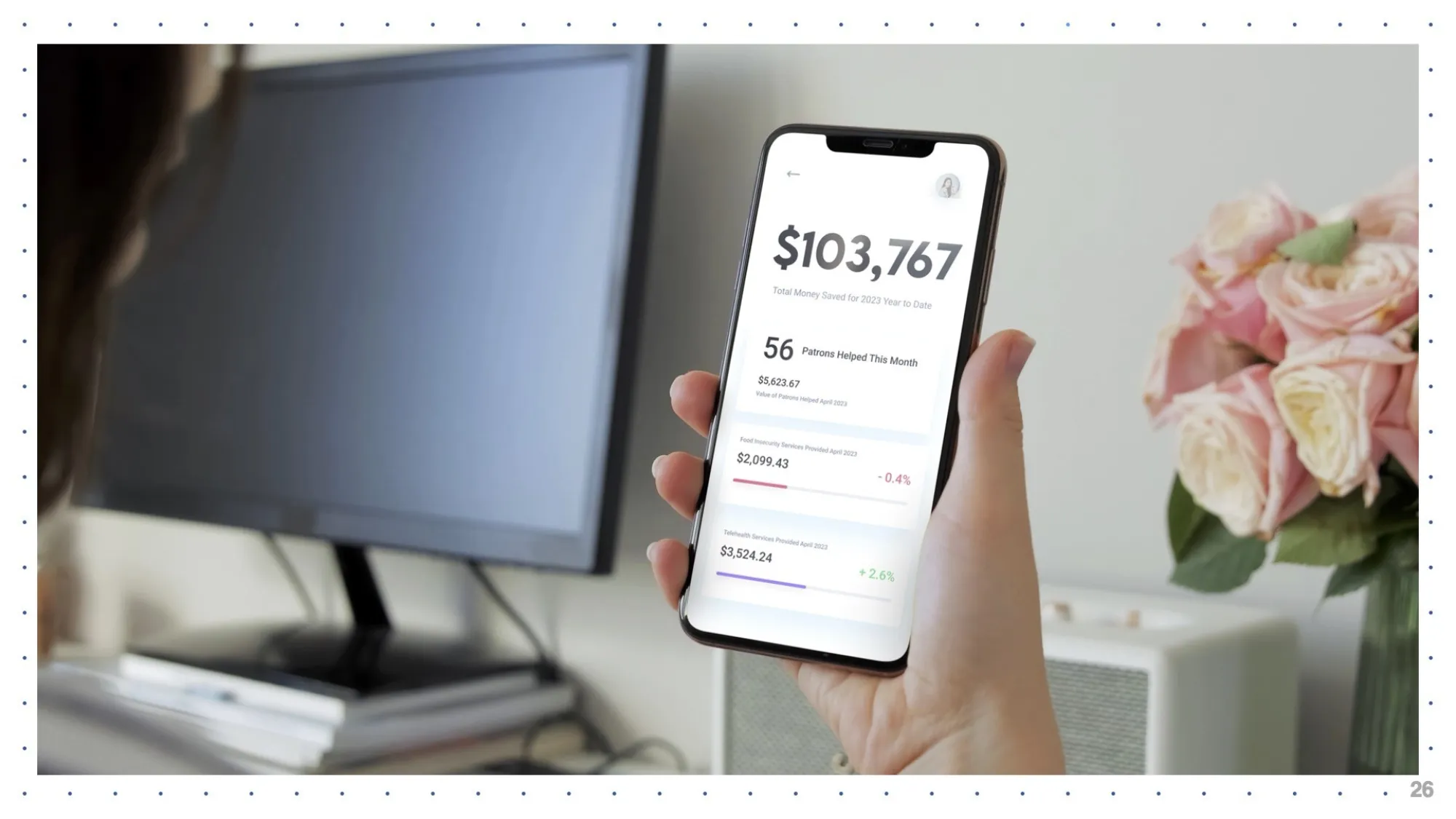
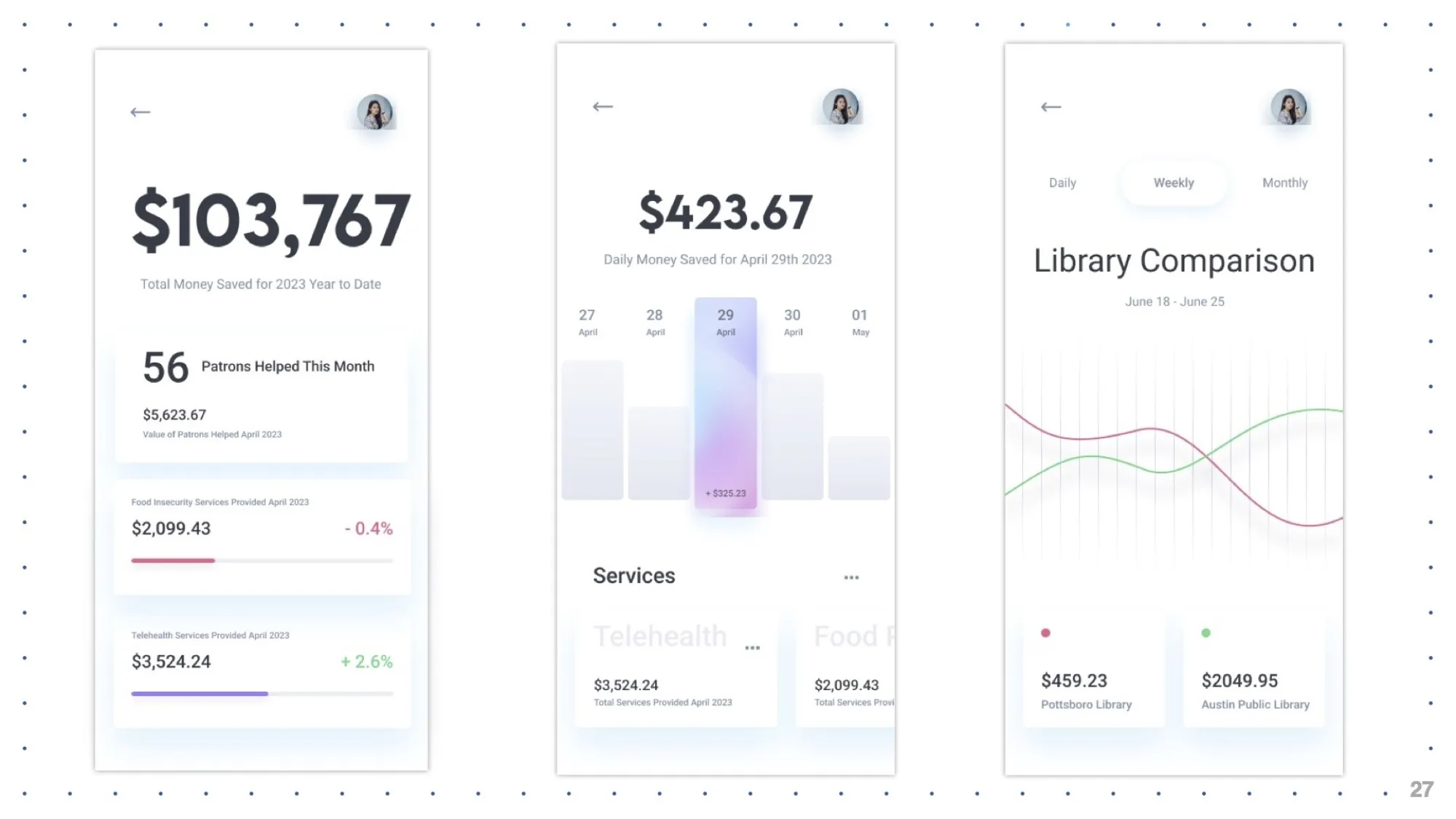
Library Health Card
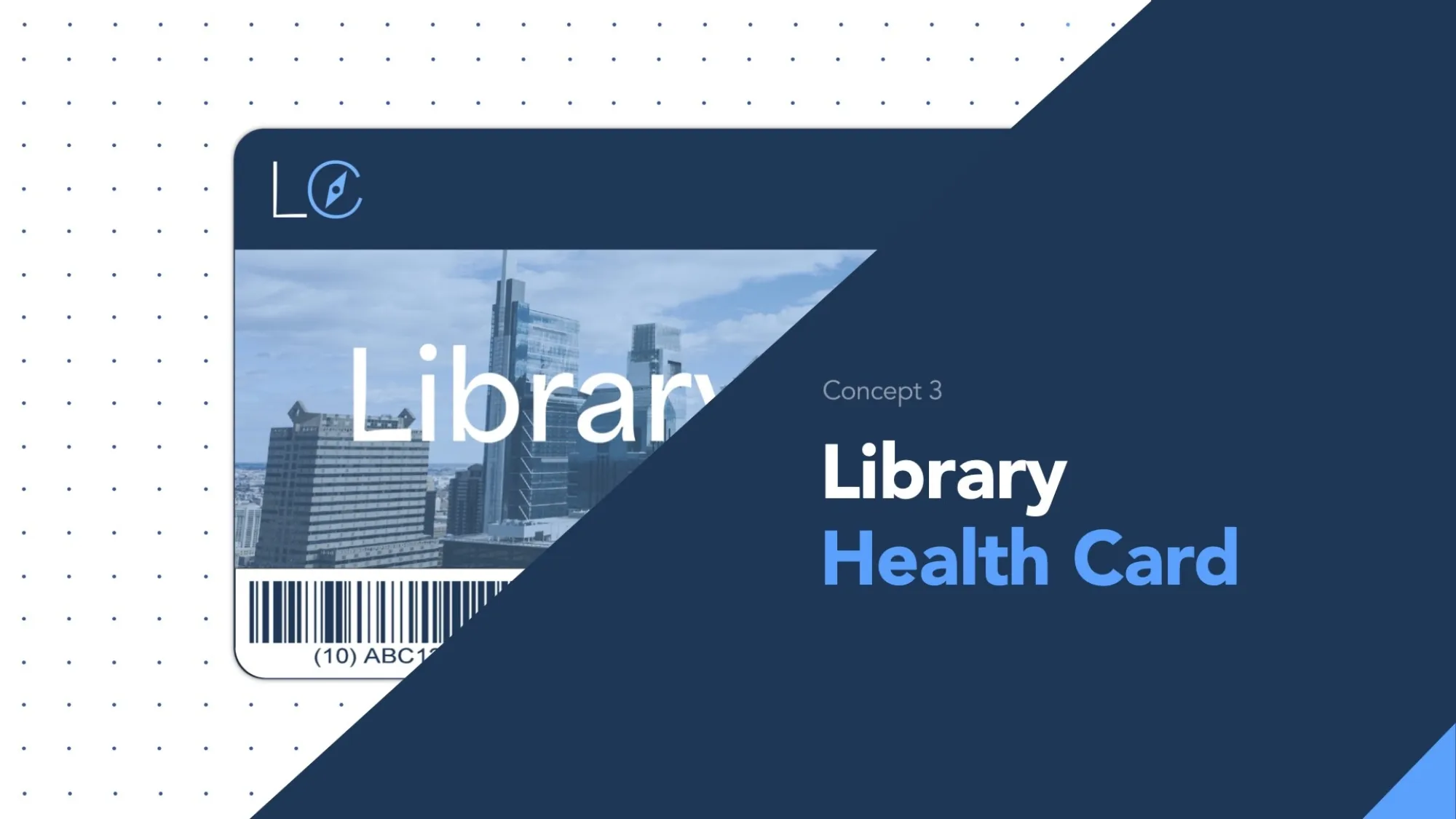
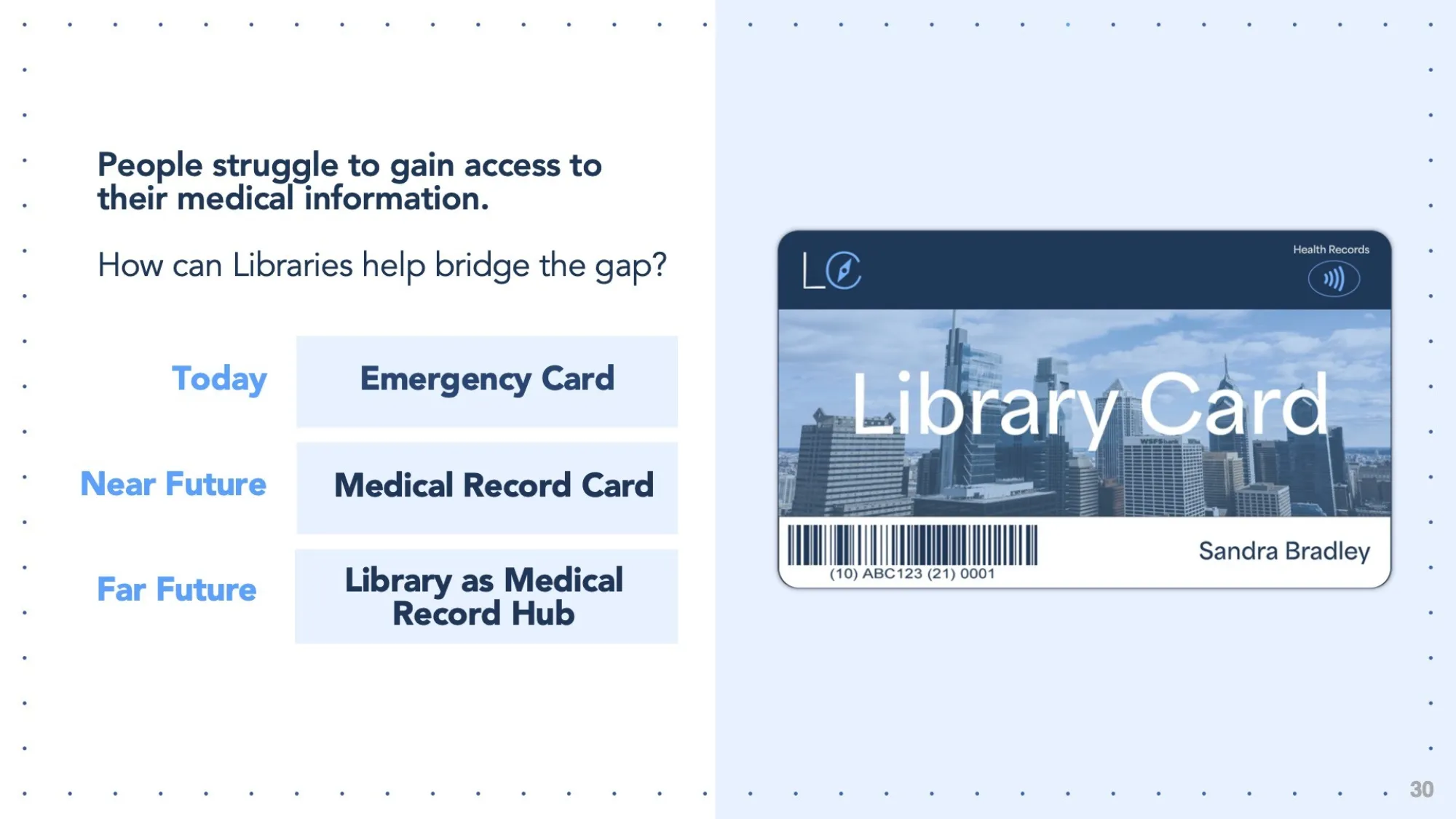
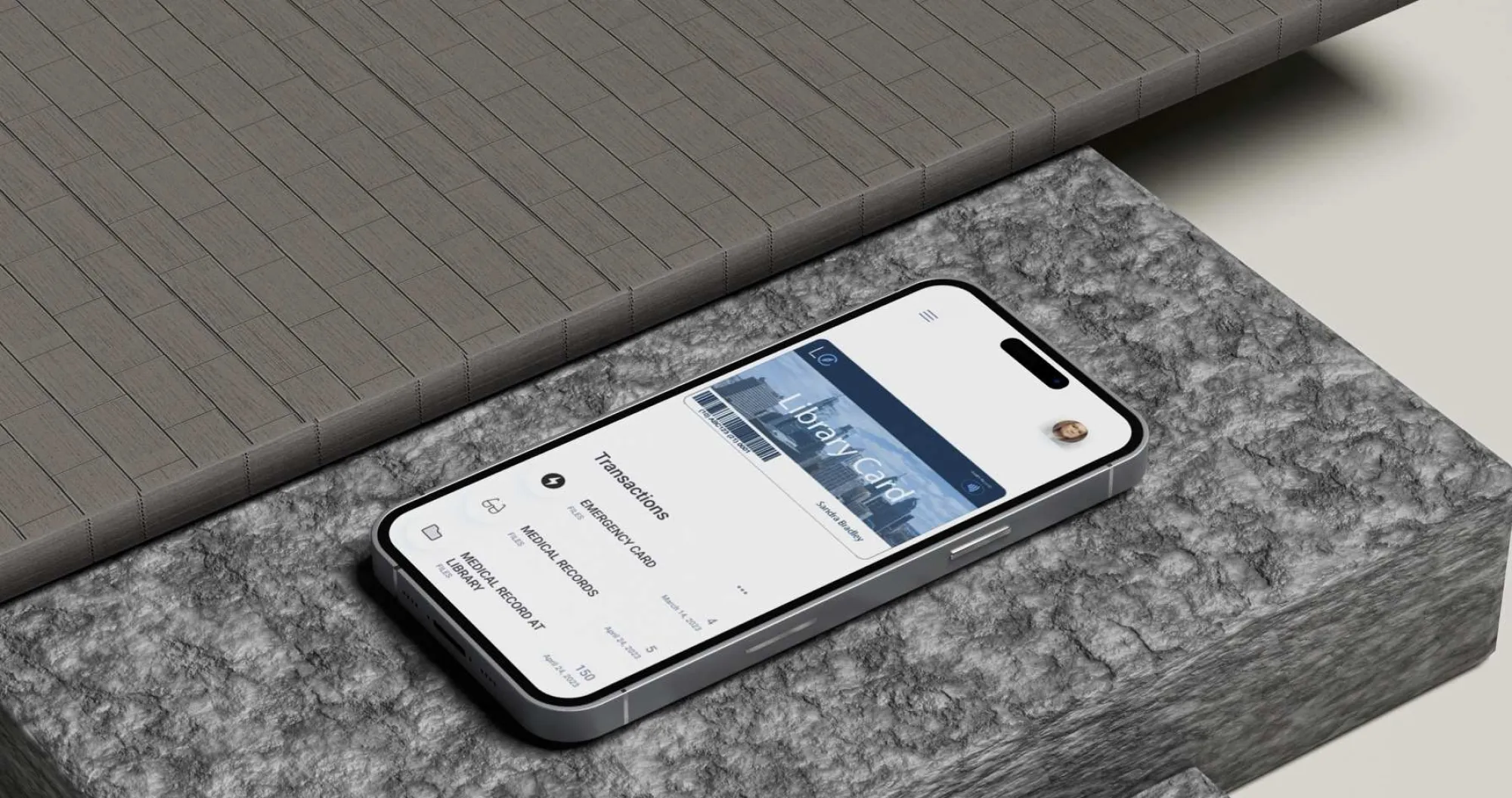
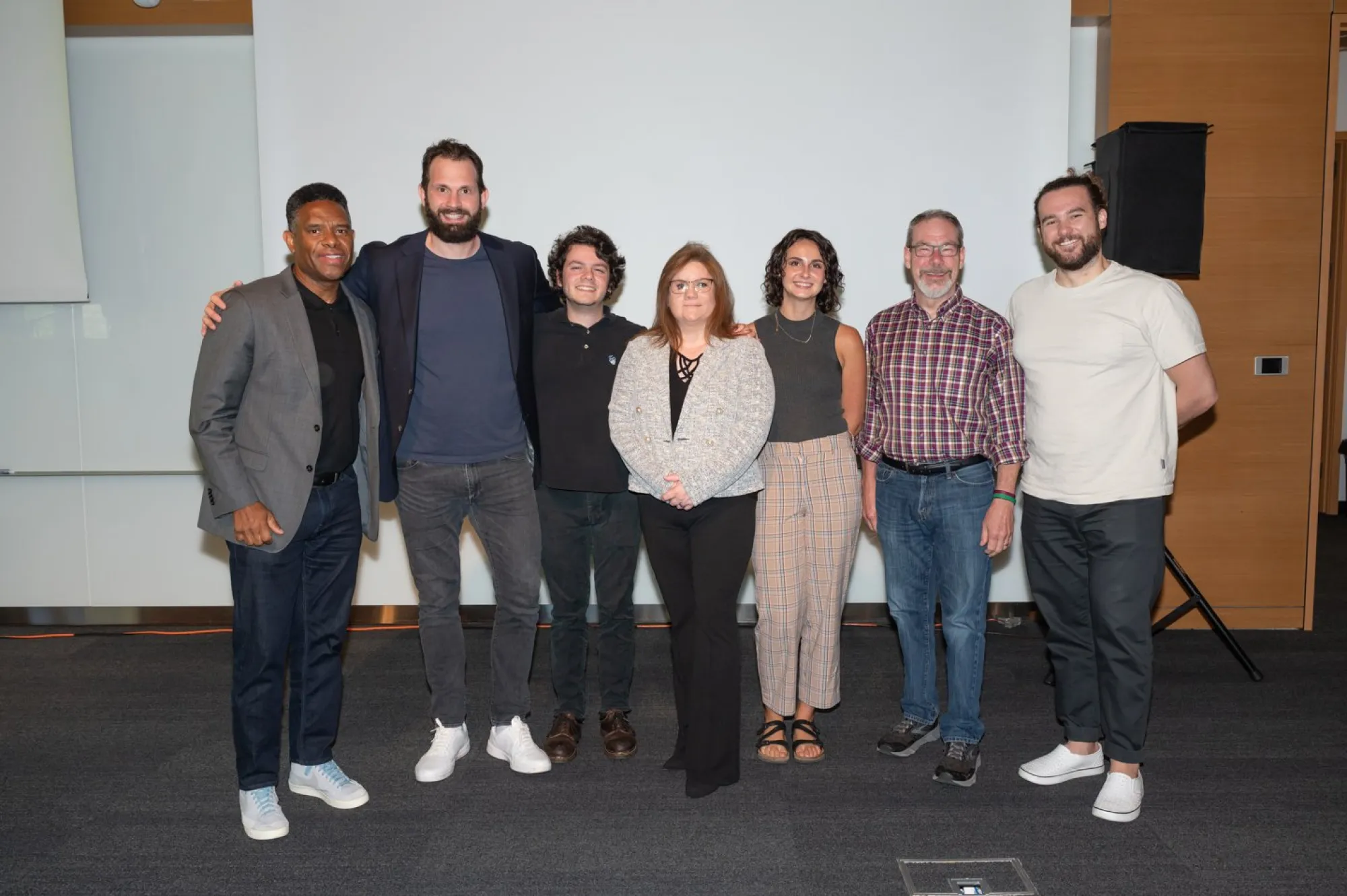
Learn More
Find out more about The IC² Institute.
Design Team
Sandra Bradley
Jesse Davison
Sam Kinard
Evan Stack
Project Summary
Amid growing demands for community health support, students explored how libraries—especially in underserved areas—can serve as trusted, non-clinical well-being hubs. Partnering with UT’s IC² Institute, they proposed scalable tools and strategies to help librarians support the delivery of health services, measure impact, and advocate for vital funding.
Project Contributors
The IC² Institute

